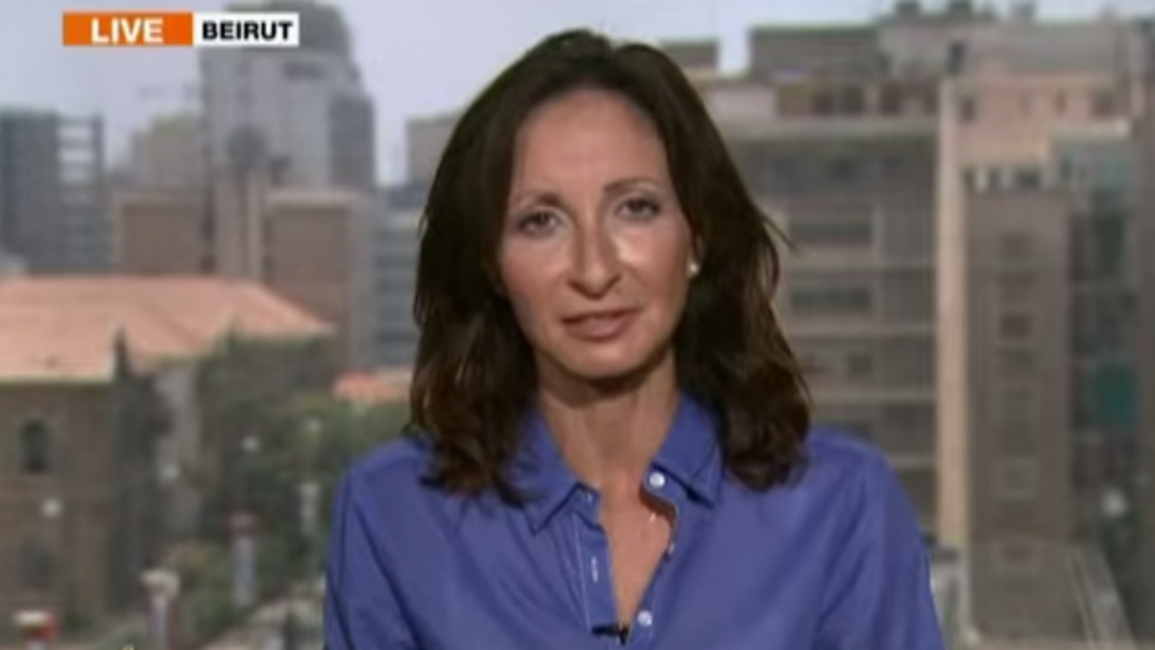
Custody battle puts Jordanian justice system in the dock
Reporters dislike being part of the story. Most like to hide in the background, paper and pen in hand, taking down details of this or that story.
Jordanian police arrested Rula Amin, a veteran journalist with al-Jazeera, in Amman on Monday, 16 March. The reason for the arrest had little to do with Amin's reportage - which is both well-informed and deeply compassionate.
| The institutional integrity of Jordan is at stake here. |
When the cameras are rolling, she is a consummate professional. When the cameras turn off, Rula Amin inserts herself into the small tragedies that surround her - helping people who had previously appeared in her stories. This did not bother the Jordanian authorities. The police had other matters to attend to.
A bitter custody battle
The reason for the arrest goes back to 2013, when Rula Amin and her former husband Mohammad Ajlouney began a custody battle over their daughter (now age five). No parent is immune to the immense tragedy of this kind of situation - where a child is placed between parental tensions that linger on and settle into the emotional world of the child.
In August 2013, Ajlouney took his daughter out for ice-cream in Ramallah, but instead drove her to the Jordanian embassy in Tel Aviv, where a laissez-passer was made for the young child. The father then drove her into Jordan. If Palestine were a proper state, he would not have been able so easily to flout its borders and kidnap a child. Ajlouney denied the mother, Rula Amin, visitation rights for months on end, her close friends said.
Amin filed a case in the Wadi al-Seir Sharia Court, seeking custody rights. The court, in an expedited decision, ruled in her favour. When Amin went to report a story in Egypt, she left her daughter with her mother, the child's grandmother. The father, Ajlouney took his daughter out as part of the visitation agreement. For the second time, he took his child away without permission from the mother. At this point, Ajlouney moved the Sharia Court with the argument that his wife was not available to care for their daughter and that the grandmother was too old to be in charge. For eight months, he denied Amin the right to see her daughter, close friends said. In the Summer of 2014, when the daughter was on a visit to a common friend's house, Amin was able to talk to her by skype.
Nothing here is unusual. Custody battles anywhere can become remarkably vicious. The 1979 American film, Kramer vs. Kramer, dramatically raised the issue of child custody fights - although the film, by insisting on balance between the two parents, allowed the audience to sympathise much more with the father. He is after all the one who comes off as the better parent, and this is what allows his ex-wife to - at the end - see that the best interests of the child are served if the boy lives with the father. Institutions across the world tend to favour the father, even when laws are in place (for a variety of reasons) that insist on maternal rights before the child goes through puberty. The idea of the "best interests of the child" is rarely honoured.
In September 2014, Amin won a ruling on her behalf from the Sharia Court. Afraid that her child would once more be kidnapped, she was cautious about visitation. After all, twice before the father had seized the child and denied the mother any visitation. An appellate court, out of precedent, then found with the father and revoked the ruling. Amin was told on Sunday that she has a week to hand over her child to Ajlouney. The next day, on Monday, the Jordanian police arrested her.
Social media outrage
Social media fluttered with anger over the arrest. "What happened to Rula Amin is despicable," said one person, "and turns our Legal System into a Joke." Disgusting, unprecedented, outrageous - these are the words that have come to define the case. Attuned to the sexism of these cases, one person wrote, "Arab men use kids in a divorce as weapons to humiliate the mothers. The interest of children is often secondary to 'losing to a woman'." This is not a particular Arab problem. It is a global one, with local variations.
What is remarkable about the case is that an expedited ruling is not subject to appeal. The institutional integrity of Jordan is at stake here. Have interests other than the merely legal taken precedence here? Such things are not unknown across the planet - where powerful people use their influence to move the institutions on their behalf. The other part of the story that is less likely to be aired is that while Ajlouney is Jordanian, and a member of a powerful confederacy, Amin is Palestinian - with all the insecurity of such statelessness. She is also a woman with a job.
She is a reporter who is well liked in the fraternity of journalists. This is one of the reasons her case will receive far more publicity than other more anonymous stories. Amin was released on Tuesday on a special dispensation. Her release was likely prompted by the uproar around the arrest.
The case, nonetheless, continues. If cases such as that of Amin can shine a light on a systematic problem over custody, then so much the better. It is the only reason why a journalist might welcome some attention.
Opinions expressed in this article remain those of the author and do not necessarily reflect those of al-Araby al-Jadeed, its editorial board or staff.




